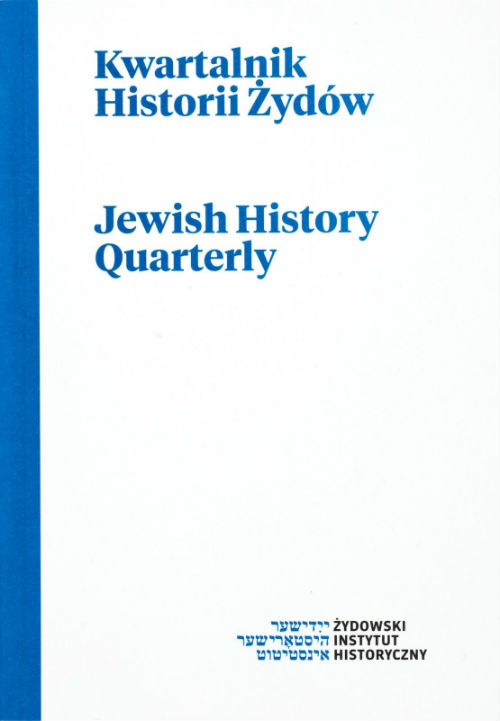Jewish Cinemas in Warsaw between WW I and WW II
Kina żydowskie w Warszawie w dwudziestoleciu międzywojennym
Author(s): Katarzyna CzajkaSubject(s): Cultural history
Published by: Żydowski Instytut Historyczny
Keywords: cinema; Warsaw; Jews
Summary/Abstract: Ever since the cinema came to Polish lands, a significant part of Warsaw cinema theaters were in the hands of Jewish owners. The two most important among them were Aleksander Hertz and Mordechaj Towbin, who opened the first cinemas as well as film-making studios in Warsaw. The competition between cinema owners and the producers bore fruit in the form of the first full-length films in the history of Polish cinematography. When Poland regained independence, the number of cinemas in Warsaw increased significantly. Some cinemas that had Jewish owners were located in the Jewish quarter, which mostly screened films in Yiddish. However, most of the theatres were located along Marszałkowska or Nowy Świat streets. They mostly screened the productions of the biggest foreign, in particular U.S., studios, which willingly cooperated with the Jewish cinema owners at the time. In the inter-war period, the cinema owners played an important role not just in the distribution but also the production of films. Many of them had their own production companies (such as Aleksander Hertz’s Sfinks), some sat on the supervisory boards of film studios operating as joint-stock companies. Interestingly, they focused on making films in Polish, including patriotic and religious productions. This was driven by commercial considerations. The level of anti-Semitism in the film-makers’ milieu of the inter-war period was low. While these were difficult times for Warsaw cinemas, with endless strikes and disputes with the Town Hall (sparked off by an unfavorable tax policy), the Jewish cinema owners and film-makers occupied senior posts in labour unions associated with the film industry. Neither was there a single film produced by the Polish film industry during that period that would have anti-Semitic overtones. On the other hands, such tenor could fairly often be found in newspaper reviews of new films.
Journal: Kwartalnik Historii Żydów
- Issue Year: 247/2013
- Issue No: 03
- Page Range: 561-570
- Page Count: 10
- Language: Polish

